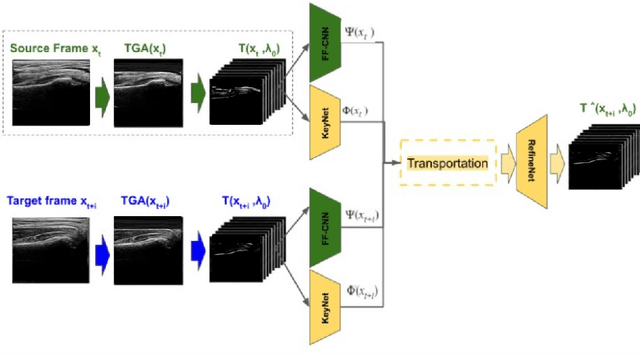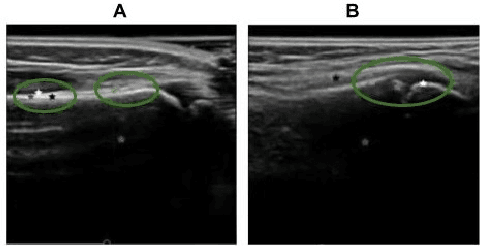Domain Specific Transporter Framework to Detect Fractures in Ultrasound
Paper and Code
Jun 09, 2021


Ultrasound examination for detecting fractures is ideally suited for Emergency Departments (ED) as it is relatively fast, safe (from ionizing radiation), has dynamic imaging capability and is easily portable. High interobserver variability in manual assessment of ultrasound scans has piqued research interest in automatic assessment techniques using Deep Learning (DL). Most DL techniques are supervised and are trained on large numbers of labeled data which is expensive and requires many hours of careful annotation by experts. In this paper, we propose an unsupervised, domain specific transporter framework to identify relevant keypoints from wrist ultrasound scans. Our framework provides a concise geometric representation highlighting regions with high structural variation in a 3D ultrasound (3DUS) sequence. We also incorporate domain specific information represented by instantaneous local phase (LP) which detects bone features from 3DUS. We validate the technique on 3DUS videos obtained from 30 subjects. Each ultrasound scan was independently assessed by three readers to identify fractures along with the corresponding x-ray. Saliency of keypoints detected in the image\ are compared against manual assessment based on distance from relevant features.The transporter neural network was able to accurately detect 180 out of 250 bone regions sampled from wrist ultrasound videos. We expect this technique to increase the applicability of ultrasound in fracture detection.
 Add to Chrome
Add to Chrome Add to Firefox
Add to Firefox Add to Edge
Add to Edge